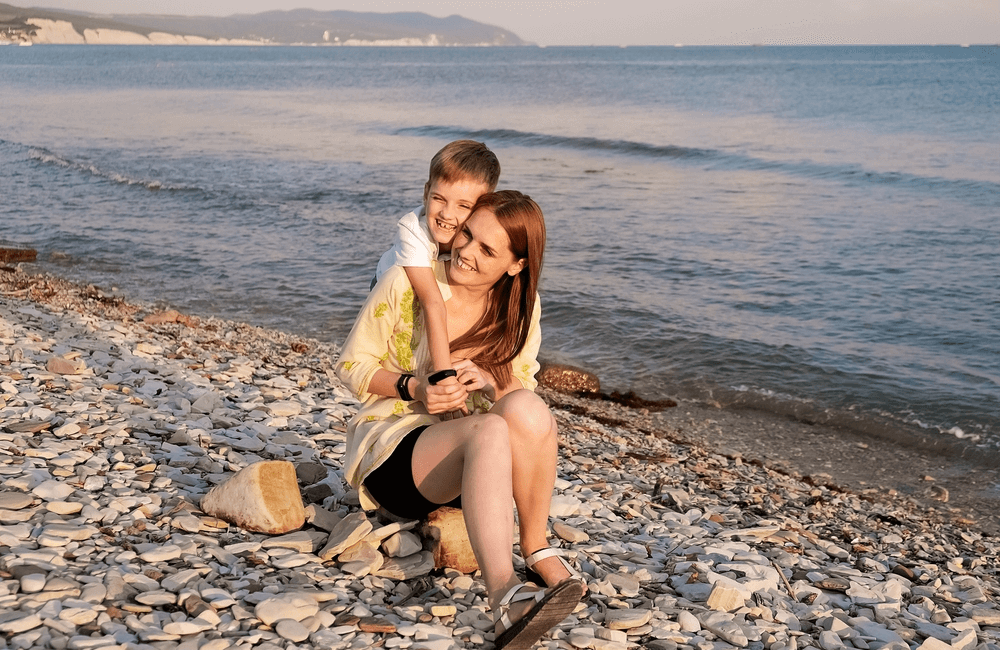Jellyfish Parenting and Other ‘Wildlife’ Parenting Styles

The jellyfish family model of parenting is a relatively new concept that aims to give parents a roadmap for raising their children with structure and flexibility. This type of parenting has some advantages but also some potential drawbacks that parents should consider before adopting this approach.
Let’s take a look at what jellyfish parenting is and how it can affect your child’s development.
Contents:
Definition of Jellyfish Parenting

Alliance Images/Shatterstock.com
Jellyfish Parenting is a term used in parenting circles to refer to a style of parenting that is soft approach and non-authoritarian. At their core, these parents desire to create an environment where children feel nurtured and heard; they strive to build strong trust and relationships with their kids instead of relying on redirection or punishment.
The term itself likely originates from jellyfish, which float along with the current, making no real effort to direct but rather letting the natural course happen. Coming from Asia, jellyfish Parenting has spread around the world due to its appeal as an alternative approach to raising children in an accepting atmosphere.
It brings forth ideas such as allowing the child’s emotions to take priority over anything else, providing special attention for individual needs, and teaching kids about mutual respect for the protection of both autonomy and safety.
This type of parenting focuses more on being mindful about our responses than does being reactive—allowing us time to consider the actual cause for conflict before solving it.
What Should Jellyfish Parents Do?

Hryshchyshen Serhii/Shutterstock.com
Jellyfish parents have an immense responsibility when it comes to raising their children, particularly when there is only one jellyfish mom in the family. Jellyfish moms should ensure that their children are provided with a safe home environment and that all of their needs are met.
They should strive to create meaningful connections with their children to provide them with love, support, and guidance over a lifetime. Additionally, jellyfish moms need to be mindful of their own physical and mental health in order to best serve as role models for their kids.
Finally, jellyfish moms should build strong social networks within their families and local communities for emotional and material support outside the home. Ultimately, jellyfish parents can look to these strategies to form strong relationships with their children, which will allow them to thrive fully in life.
Drawbacks of Being a Jellyfish Parent

Soloviova Liudmyla/Shutterstock.com
A jellyfish parent gives no limits or boundaries and often does not prepare the child for the real world. Let’s take a deeper look at the drawbacks of being a jellyfish parent.
Risk-Taking Behaviors
One of the biggest risks associated with jellyfish parenting is that children may engage in risky behaviors because they don’t understand the potential repercussions of their actions. For example, if a child doesn’t experience any consequences when they break the rules or don’t do their homework, they may be more likely to repeat these behaviors in the future.
This can lead to more serious issues down the road, such as poor academic performance or even criminal activity.
If you decide to become an adept of jellyfish parenting (or any other style that requires giving a child a lot of freedom), install the Findmykids application—with it you will be able to know where your child is and what is happening around them without unnecessary calls and SMS!
The Lack of Responsibility & Accountability
One of the biggest drawbacks to being a jellyfish parent is that your child will never learn responsibility or accountability. When parents are too lenient and do not set expectations, children become comfortable, assuming someone else will take care of them no matter what.
This lack of responsibility can lead to problems down the road when it comes time for them to tackle tasks on their own, like applying for college, getting a job, or even just doing their chores.
No Real Sense of Direction or Goals
Jellyfish parenting also has an effect on children’s self-esteem and sense of direction in life due to the lack of guidance. Without encouragement from parents, children may struggle to set goals and strive for success in school and other activities.
By not providing an anchor in terms of values and beliefs, your kids may have trouble navigating through difficult situations they encounter as they grow up.
Inability to Handle Pressure & Stress
Lastly, one major drawback associated with jellyfish parenting is the inability of children to handle pressure or stress when faced with difficult challenges later in life. Without having ever had any real structure or discipline growing up, kids will be more likely to crumble under pressure when faced with a challenge instead of finding strength within themselves to overcome it successfully.
Tigers, Dolphins, Elephants: Other Wildlife Parenting Styles

My Good Images/Shutterstock.com
Jellifish parenting is not a unique style of parenting, which got its name from nature. Following are the other kinds of wildlife parenting styles that you should know about.
Elephant Parenting Style
Elephant parenting is a relatively new term used to describe a parenting style focused on providing nurturing and structure while empowering children to make their own decisions. The name ‘elephant parenting’ comes from the idea that just like an elephant, this type of parenting guides children gently yet firmly and still allows them to be independent thinkers.
Elephant parenting is all about balance—being supportive while also giving children freedom, independence, and responsibility. It instructs conscientious behavior instead of punishing disobedience, discouraging criticism or disappointment from parents, and creating an environment built on understanding and cooperative learning.
It works towards developing trust in the parent-child relationship and aims for a respectful two-way dialogue between the two. This unique combination of qualities makes elephant parenting effective yet gentle, putting it above other, more traditional styles of raising kids.
Tiger Parenting Style

Anatoliy Karlyuk/Shatterstock.com
The tiger parenting style is a demanding approach that values hard work and success above all else. With a heavy emphasis on academics and strict punishment for anything less than perfect, tiger moms and dads aim to instill in their children the values of discipline and commitment.
This parenting style has been in practice for many generations, largely within Asian cultures, but it is not without its critics. Many argue that these strict disciplinarian approaches can lead to increased anxiety and academic burnout in children.
Although there are some drawbacks to this style, it can also produce successful individuals who have a strong appreciation for education and dedication. Ultimately, like any parenting decision, only you can decide if the tiger parenting style is right for your family.
Dolphin Parenting Style

Natali9yarova/Shatterstock.com
A dolphin parenting style is a modern approach to raising children that emphasizes tactile affection and meaningful dialogue. This progressive parenting method encourages open communication between child and parent, which can help to foster a relationship of trust and mutual respect.
Through this method, children are given the freedom to express their emotions, ideas, and concerns without fear of being judged or reprimanded for them. Additionally, it promotes exploration and discovery as parents work together with their children to understand the world around them, enhancing the child’s development process.
This parenting style provides an environment in which a child can feel safe and secure while also encouraged to pursue their passions and individuality.
Comparing Jellyfish, Dolphin, & Tiger Parenting Styles
| Parenting Style | |||
| ⠀ | Jellyfish | Dolphin | Tiger |
| Characteristics | Permissive | Balanced | Authoritarian |
| Demeanor | Passive | Flexible | Strict |
| Rules | Few | Some | Lots |
| Consequences | None | Moderate | Severe |
⠀
The Final Thought

goodluz/Shutterstock.com
Jellyfish parenting is an incredible way to create an open and supportive environment for vulnerable youth. Children of jellyfish parents are able to feel safe discussing difficult topics with their parents and developing a trusting relationship. By utilizing the practices of jellyfish parenting, parents can help foster self-confidence and openness in their children.
Share your knowledge of jellyfish parenting with other parents, comment below with your experiences, or reach out directly if you have any questions—success is within our reach!
The picture on the front page: SviatlanaLaza/Shutterstock.com
Проверьте электронный ящик



















